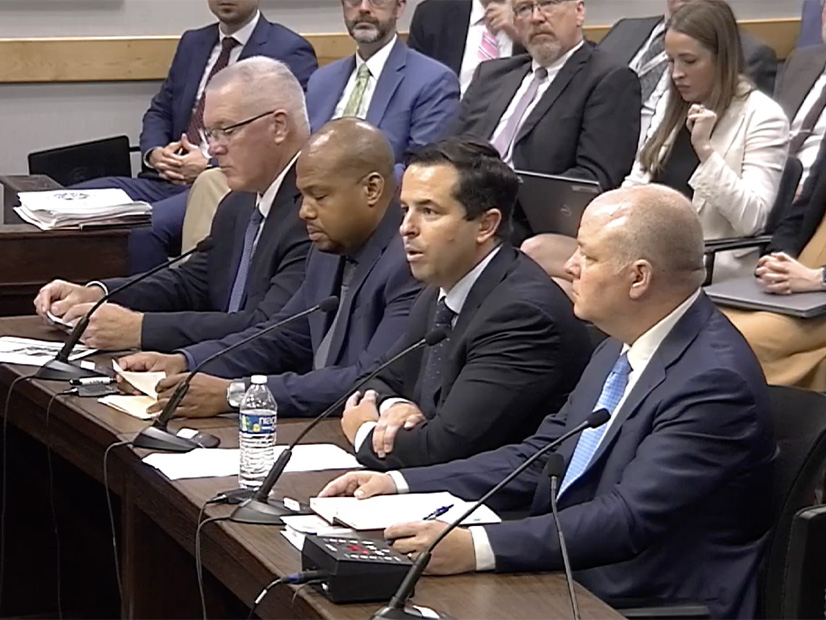
CenterPoint Energy executives appeared before Texas regulators July 25 to apologize for the company’s slow restoration following Hurricane Beryl’s landfall and promised to do better next time.
The Houston utility had 2.6 million customers without electricity in the storm’s immediate aftermath, with some waiting more than a week to get their power back. CenterPoint was roundly criticized for the slow response and its poor communications with customers.
“In times of emergency, our responsibility is to respond quickly, to communicate clearly, to provide accurate information and to restore power as rapidly and safely as we can,” CenterPoint CEO Jason Wells told the Public Utility Commission during its open meeting.
“I take personal accountability on areas where we fell short of our customers’ expectations,” he continued. “Most importantly, I want to apologize. While we cannot erase the frustrations and difficulties so many of our customers endured, I, my entire leadership team, will not make excuses. We will improve and act with a sense of urgency.”
Wells said CenterPoint will begin immediately to improve its communication with customers as part of an action plan with two other “pillars of action” focused on resiliency and greater collaboration with local partners and emergency responders. The intent is to address issues for the remainder of the hurricane season and beyond.
Central to the plan is strengthening the utility’s vegetation management efforts. Wells said that as of July 16, CenterPoint had nearly doubled its vegetation-management workforce “to immediately address the higher risk areas … throughout the rest of this calendar year.”
The utility plans to roll out a new cloud-based outage tracker Aug. 1, replacing the previous version that never was able to recover after being swamped following a derecho in May. It also will use composite poles to replace about 1,000 distribution poles currently planned for 2024.
CenterPoint said its crews removed or trimmed more than 35,000 trees during the restoration effort, walked over 8,500 to repair damage and replaced more than 3,000 poles.
Wells said CenterPoint will hire a new senior executive team member with expertise in emergency and storm response. More actions will be taken based on internal reviews, independent analysis and counsel from emergency response and communications experts, and feedback from the PUC, elected officials and community leaders, and its customers.
“Going forward, our most important priority today and in the months ahead will be to improve our emergency response with a sense of urgency to re-earn your trust and the trust of the millions of people who depend on us,” Wells said.
The PUC has opened a “rigorous” study of CenterPoint over repeated failures in its footprint. The utility also is being probed by state lawmakers, with hearings scheduled July 29 and July 31. (See CenterPoint Under Fire for Its Beryl Response.)
The commission threatened to recall CenterPoint’s $2.3 billion resiliency plan — filed in April and currently in settlement negotiations — and preside over the hearings. However, it agreed to give the utility time to reach an agreement with the other parties (56548).
“I want to ensure that we have the right, as in the law, to modify any plan that’s presented to us,” Commissioner Jimmy Glotfelty said. “Even if there’s a settlement, we must be willing to bring this back to the commission to get deeper into the specifics of how we will ensure resiliency on the CenterPoint system.”
“You have an obligation to serve. You have an obligation to provide continuous and adequate service,” fellow Commissioner Lori Cobos said. “Getting a resiliency plan approved does not stop you from doing what you should be doing already to maintain continuous and adequate service for your customers and your service territory.”
CenterPoint promised the PUC it would provide an update on the settlement negotiations within a week.



